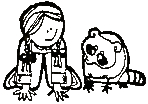General Resources
RECOGNIZING CHILD NEGLECT OR ABUSE
We want to ensure the safety and well-being of all of our campers. While the links above can help protect them physically, we also want to be aware of any signs of abuse or neglect. We ask that you keep a look out for any potential signs and report them to HQ to address.
For help understanding the potential signs, please review:
VOLUNTEER ETIQUETTE
Following these simple guidelines will help make your week at camp a happier place.
- Everyone is part of a team. Please be sure to do your share of the planning.
- If you are an Assistant Unit Leader (AUL), please assist your Unit Leader (UL) in the planning and preparations. If everyone helps, the amount of work each person has to do lessens.
- If you are the Unit Leader—delegate, delegate, delegate! No one expects you to run things by yourself. Remember your PAs are a great resource as well, as they have been at camp for several years!
- Communication is important. If something arises that may interfere with your performing a task, please let your team know asap.
- Your PAs and AULs may have more camp knowledge than you. Treat them as valued members of your team and watch as they do amazing things!
Please understand that skipping trainings, not communicating with members of your team, and/or refusing to participate in planning and/or set-up may cause you to be dismissed as a volunteer. If this happens, your children will be placed at the end of the waitlist. We understand that things arise and circumstances change. Work with us and we will work with you.
Also: Of course you may visit your daughter’s unit. But visiting your daughter during camp should be kept at a minimum, keeping in mind the 1 adult to 13 campers ratio for units and program activities. Frequent visits can also be a distraction for your camper and their entire unit. A good time to visit them is when your unit is at a program (as other adult volunteers will be present). If you are volunteering in a program area, you can visit your camper during a break in the program's schedule.



